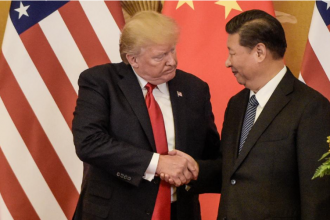How Local Recycling Innovations are Turning Small-Scale Ideas into Global Environmental Wins
Ever wonder how tiny, community-driven recycling projects are making a splash way beyond their neighborhoods? It’s pretty fascinating to see how small ideas, born out of local needs, can turn into powerful tools against environmental problems on a global scale. Many of the groundbreaking solutions we now see worldwide actually started right in the heart of communities—small towns, local businesses, grassroots groups—places where people see daily waste challenges up close.
These grassroots innovations usually come from necessity and creativity. When people face specific waste problems—like plastic waste that’s difficult to recycle, or leftover organic waste that floods landfills—they start experimenting with simple, practical ideas that feel doable and effective. This might be neighborhood composting programs, local waste sorting stations equipped with simple tech, or creative upcycling initiatives that turn trash into art or useful products. Because they’re rooted directly in the community, these ideas tend to be more sustainable—they’re tailored to local habits, preferences, and available resources. They’re also quicker to roll out and easier to adapt as circumstances change.
What’s truly exciting is that many of these small-scale ideas are scalable and adaptable. For example, a composting program in one neighborhood can inspire similar efforts in neighboring areas or even across different countries. The key ingredients—community engagement, simplicity, and relevance—are often exactly what’s needed for ideas to spread. As these innovations gain momentum, they start catching the attention of global organizations, policymakers, and entrepreneurs looking for practical solutions that work in real-life conditions.
Another reason these local ideas pack a punch on the world stage is that they often blend traditional knowledge with modern technology. For centuries, communities have used time-tested, sustainable practices to manage waste and resources—they just need the right boost to modernize and scale. For example, indigenous knowledge about composting or resource reuse can be integrated with new technologies, creating models that are both innovative and culturally respectful.
All these factors combine to create a ripple effect. A successful local recycling model can inspire others worldwide, leading to global movements that emphasize community-led solutions rather than one-size-fits-all approaches. This phenomenon shows that sometimes, the best environmental solutions start small but have the potential to grow big, crossing borders and inspiring change everywhere. Recognizing and supporting these local innovations can be a game-changer in the global fight against pollution, climate change, and environmental degradation. After all, some of the smartest, most sustainable environmental wins originate in the smallest of places.
Why Supporting Grassroots Recycling Efforts Can Spark Global Environmental Change—and How You Can Get Involved
Think your local recycling effort isn’t a big deal in the grand scheme? Think again. Small grassroots recycling projects might seem modest, but they’re actually powerful drivers of wider environmental change. When communities take recycling into their own hands—creating new ways to manage waste, upcycle, and educate—they’re not just cleaning up their streets; they’re laying the groundwork for a global movement towards sustainability.
These grassroots initiatives often develop innovative solutions specifically designed for their local environment. For instance, a community might create a unique plastic collection method for recyclables that are hard to process elsewhere, or craft DIY upcycling workshops that turn waste into useful products. Education programs led by local groups—teaching kids and adults alike about waste reduction—can spark lifelong habits and cultural shifts that ripple outward.
Supporting these efforts is super important because when local solutions prove effective, they often attract interest from larger organizations, NGOs, and even government agencies. Successful models can be scaled or adapted to other regions facing similar issues. Imagine a small town that starts composting organic waste and creates a thriving local business around it—this becomes a blueprint for other communities aiming to reduce landfill burden and greenhouse gas emissions.
Getting involved doesn’t require being a recycling expert or funding a startup. You can help by volunteering at local projects, sharing success stories on social media, or simply raising awareness among friends and family. Every small effort counts. Supporting grassroots recycling initiatives also encourages innovation, provides local jobs, and boosts community pride—all vital ingredients for sustainable development.
Thanks to the rise of global online networks and social platforms, sharing stories of successful recycling efforts has become easier than ever. When you support a local project, whether by participating directly or spreading the word, you’re contributing to a broader movement toward environmental resilience. Your involvement can help turn small, community-based ideas into impactful change on a worldwide scale.
In summary, supporting grassroots recycling isn’t just about helping your neighborhood—it’s about becoming part of a global effort. When multiple communities around the world adopt and adapt local innovations, we build a more sustainable, resilient, and inclusive future. So, whether you’re a concerned citizen, a passionate environmentalist, or just someone who wants to make a difference, remember: your small acts of support can help turn local solutions into global wins for our planet.





